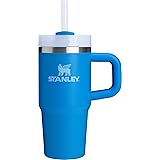Standards on the control of STEC, for water reuse and the use of remote audits were adopted at the latest Codex Alimentarius Commission session.
Maximum Residue Limits (MRLs) for zilpaterol hydrochloride in different animal origin products have also been approved after a vote. Codex texts are voluntary and countries can choose not to put the MRLs into legislation.
Guidelines on Shiga toxin-producing E. coli (STEC) aim to help risk managers and food businesses in efforts to reduce foodborne disease by providing advice and guidance on the control of STEC in raw beef, raw milk and raw milk cheeses. Work on STEC in fresh leafy vegetables and sprouts is ongoing.
Guidelines on water use give advice on the types of water suitable for different areas of food production and processing. They advise on a risk-based approach to safe water sourcing so producers, processors and handlers can reduce and manage associated hazards in food production.
Guidelines on the use of remote audits and inspections outlines seven principles that can form the basis of such audits in regulatory frameworks, and help with planning and implementation.
A code of practice related to cassava and cassava-based products provides governments and food businesses, growers, processors and distributors with knowledge about factors that may lead to an occurrence of mycotoxin contamination and ways to detect, reduce or prevent it.
Other adopted standards included a regional one on soybean products fermented with Bacillus species in Asia, a maximum level for lead in ready-to-eat meals for infants and young children and sampling plans for total aflatoxins in certain cereals and cereal-based products including foods for infants and young children.
Growth promoter decision goes to vote
From 137 votes cast on zilpaterol hydrochloride in cattle liver, kidney and muscle, 88 voted for adoption, 49 were against and 11 countries abstained. The United States was one of the countries to welcome adoption of the standard but several nations expressed regret at the move.
In Europe, the use of growth promoters is not allowed. The EU said it would not accept import of meat from animals given such substances. The UK said the compound was prohibited in national legislation.
In a strongly-worded statement, China said the conclusion was disappointing.
“In our Codex journey, it is the second time we witnessed the failure of Codex, as the standard was adopted by voting. The way we came to the conclusion, and the conclusion itself undermined the spirit of negotiation, undermined the principle of consensus, and even undermined all the efforts we’ve made all these years communicating, discussing, and consulting on this issue.”
Russia, which also voted against adopting the standard, said it “deeply regrets” that the Commission was unable to reach a consensus on the issue due to differences of opinion.
Future focus areas
In 2024, FAO will hold a meeting to work on guidance for the implementation of marine biotoxins monitoring. A report on the most common frauds in the fisheries and aquaculture sector and available tools to prevent it will also be available early next year as will a report on the food safety aspects of precision fermentation.
The Codex Alimentarius Commission agreed to new work on developing guidelines for food hygiene control measures in traditional markets and to prevent or reduce ciguatera poisoning. Revisions to documents on controlling pathogenic Vibrio in seafood and product traceability were also supported.
Work on maximum levels for total aflatoxins in paprika, ginger, black and white pepper, and turmeric and for ochratoxin A in the latter three products was stopped.
(To sign up for a free subscription to Food Safety News, click here.)
Note: This article have been indexed to our site. We do not claim legitimacy, ownership or copyright of any of the content above. To see the article at original source Click Here













